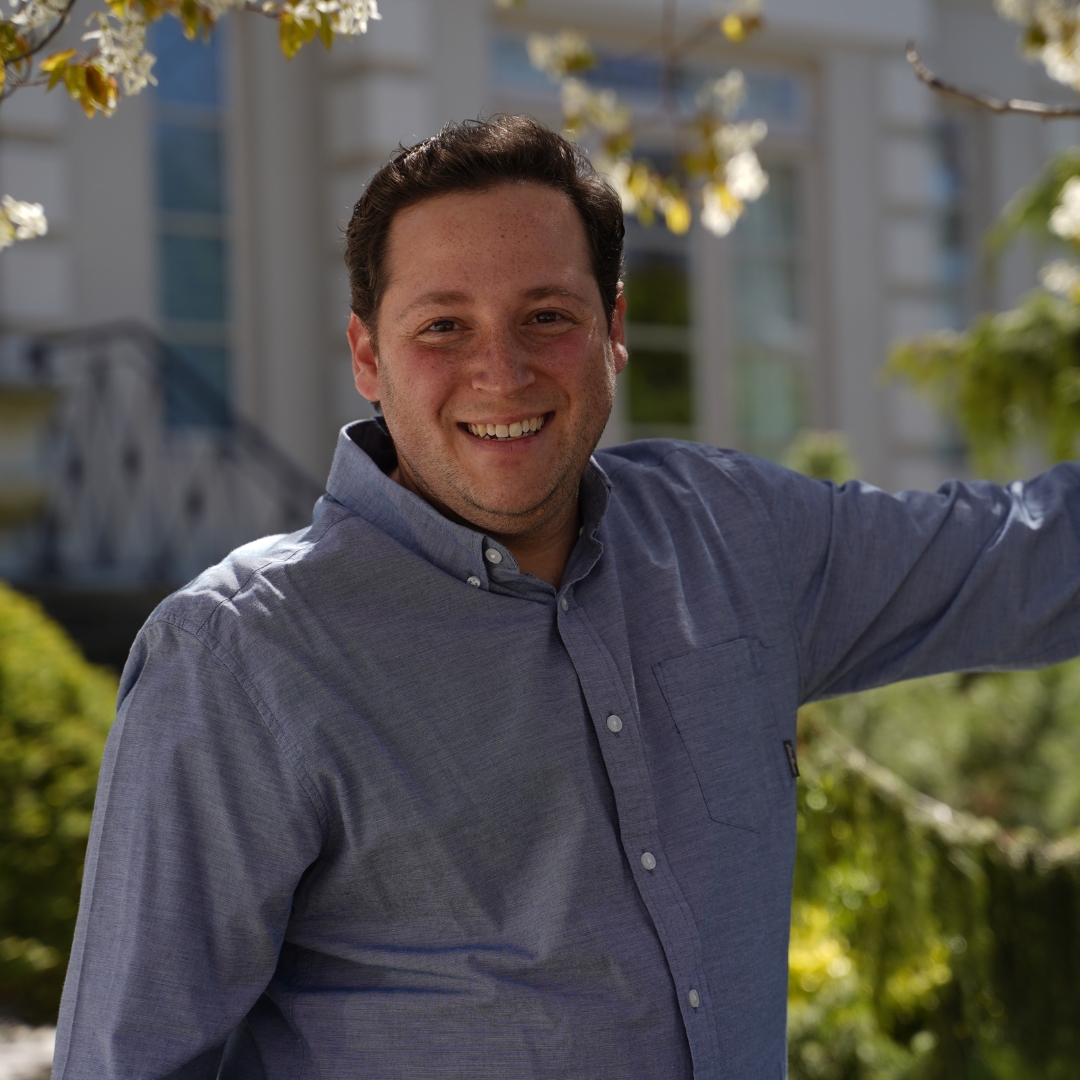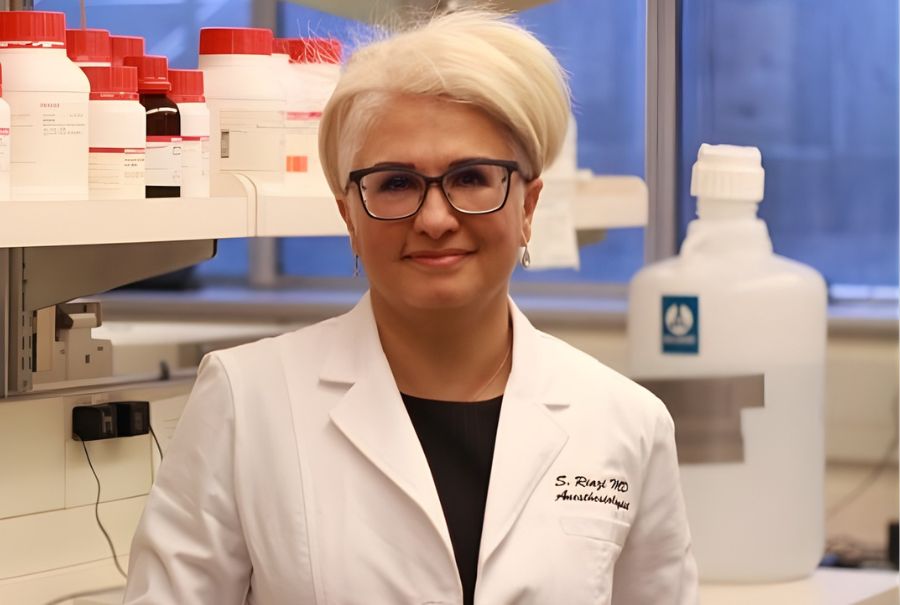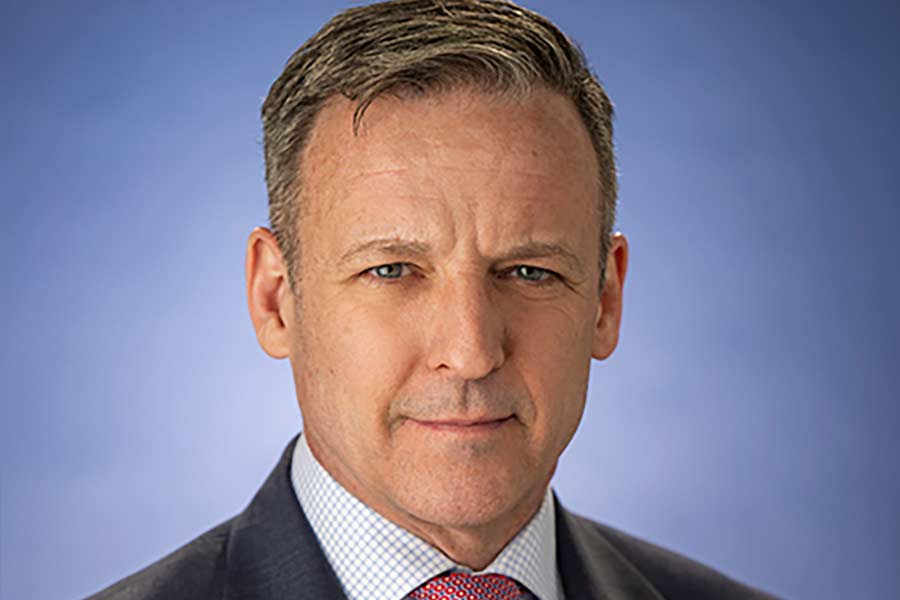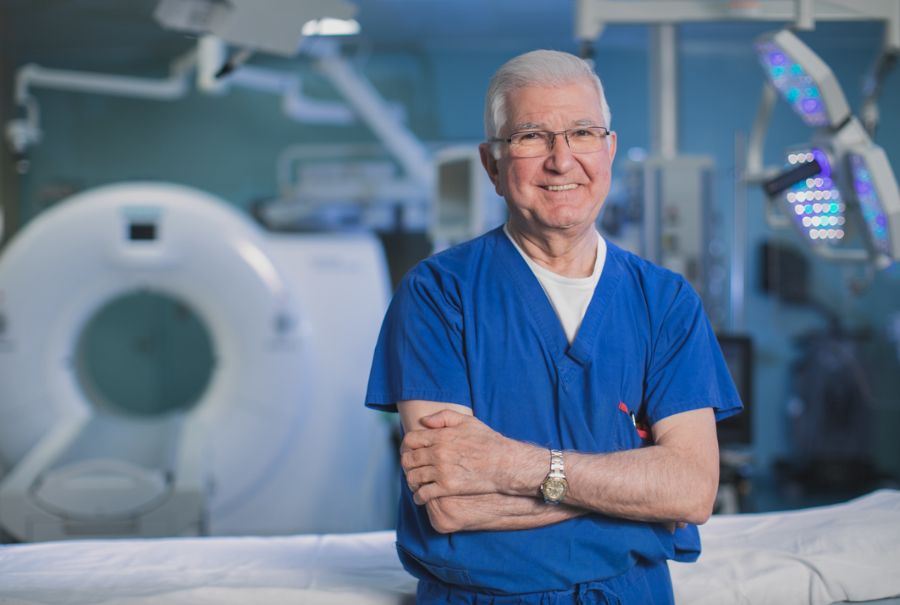
Name: Jeffrey Wieskopf
Title: Psychiatrist, UHN Centre for Mental Health, Toronto General Hospital Transitional Pain Service
Number of years working in health care: 7
I was born and raised in: Born in Montreal, raised in Toronto
I decided to get into health care because I always had a deep interest in the life sciences. As I advanced in my educational journey, I learned that I had a passion for clinical care, in addition to scientific advancement. Working in health care at UHN has allowed me to interact with patients daily, while also looking into new ways to improve the care we can provide to them.
My role here at UHN is to treat patients with severe mental illness and concurrent chronic pain. The co-occurrence of mental illness and chronic pain is extremely high. In addition, patients with both chronic pain and mental illness have significantly shortened life expectancies and are at risk of developing a host of other ailments like diabetes, heart disease and problematic substance use. Many of these individuals also often feel instantly stigmatized walking through our hospital doors. Their pain and symptoms are often undertreated. My role is to help treat these patients and improve their experiences within our health care system.
The thing I love the most about my job is helping improve my patients’ function and quality of life. All too often, we get bogged down in specific symptoms or numerical ratings such as someone’s daily pain scores. When I can help a patient return to work – or even simply reconnect with friends who they have lost touch with due to pain – it’s a huge win from my perspective.
The effects of this can snowball. Clients who regain a sense of normalcy note improved quality of life, feel less isolated and eventually experience an improvement in symptoms. The first step is always improving their day-to-day lives and re-engaging with activities that bring them joy.
The most incredible thing I’ve seen at work is how multidisciplinary teams rally together for patient care. Toronto General Hospital treats some of the world’s most complex patients. In my interactions with other health care providers, the patient-centred approach of these teams always shines through. In my opinion, this high degree of collaborative care keeps Toronto General Hospital and UHN as one of the top institutions in the world.
I’m inspired by my patients. Every day, I’m amazed by their stories and their resilience. Day in and day out, I encounter patients with awe-inspiring journeys – patients walking after being told their odds of regaining movement in their legs was next to none, patients living into their fifties when they were told their life expectancy is a maximum of 30-years-old. I am always amazed by the motivation that my patients have to keep pushing forward while maintaining a positive attitude. Ultimately, I think it is this positivity that plays such a huge role in their recovery.
One of my personal heroes is my late grandfather because he embodied many qualities that I strive to hone and develop in myself. From a young age, I always heard stories about his work ethic and determination working behind a bakery counter at the young age of seven. A few years later, he began driving a bread truck while still a minor to provide for his parents and siblings. His commitment to lifelong learning and his desire to challenge himself was also always an inspiration. At an age when most of his peers were retiring, my grandfather transitioned from an accounting business to becoming a restaurant owner. Despite the challenges of the restaurant industry, it was no surprise to everyone who knew him that he was immensely successful. Finally, and perhaps most importantly, despite his hard-working mentality, he always balanced his business pursuits with spending time with his family – a balance I look to replicate in my own career.
I sometimes worry about meeting the mental health needs of our children and future generations. We still don’t know the long-term impact that COVID has had on mental health, along with technology, social media and other emerging complicating factors, to name just a few. We know that the rate of mental illness is increasing, and will likely struggle to meet the needs of our population in a few years. This is something that will need to be addressed.
I’ve found joy recently from attending conferences and scientific meetings again. Going to conferences around the world was a staple in my life as a graduate student pre-COVID. I was lucky enough to travel to places like Barcelona, Milan and Buenos Aires, meeting researchers, practitioners and experts from around the world. This, like many other things, was derailed in 2020 for a number of years. I have recently been able to attend several local and national conferences in the past few weeks, and I am looking forward to international meetings in the coming years.
My favourite book or movie is undecided, but one recent movie that I did very much enjoy is the animated film Migration. This children’s movie showcases a family of birds who step out of their comfort zone and try migrating for the first time, instead of staying near the comfort of their own lake. Despite some comical roadblocks, they continue their journey and learn to love the joys of trying new things and stepping (or rather… waddling) outside their comfort zone.
My ideal day off is a morning or afternoon round of golf with my buddies. Also – playing sports with my children. Any sport is good. Skiing, ice hockey, ball hockey, golf or swimming in the lake. Simply put, any sport that I can play outside in the fresh air works for me.
Did you know you can recognize a UHN staff member through our Honour Your Hero program? Express gratitude for the care you or a loved one received and share a personal message of thanks with the people who supported you throughout your care journey. Your gift will supported research, education and the enhancement of patient care right here at UHN.


